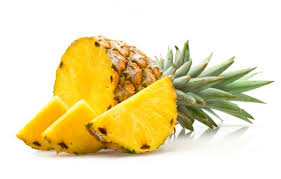- by Met

Minister without Portfolio in the Ministry of Industry, Commerce, Agriculture and Fisheries, JC Hutchinson. (Photo: JIS)
THE Rural Agricultural Development Authority (RADA) yesterday handed over 70,000 MD2 pineapple suckers to farmers in St Elizabeth, Westmoreland, St James, Hanover, Trelawny and St Ann.
The handing-over ceremony was held at the RADA St Elizabeth Parish Office in Santa Cruz, and was done under the 2019-2020 Production Incentive Programme. Some 4,000 farmers will benefit.
The Production Incentive Programme, with a budget of $280 million, is targeting the expansion of nine crops, including pineapple, yam, ginger, dasheen, hot pepper, Irish potato, onion, strawberry and cassava.
In his address at the ceremony, Minister without Portfolio in the Ministry of Industry, Commerce, Agriculture and Fisheries J C Hutchinson said the programme aims to maximise and sustain the production of these crops, thus reducing the country’s import bill.
“For the economy to grow, agriculture has to grow and we all as farmers have to play our part to make sure that we are not only looking out for ourselves, but looking out for our community,” Hutchinson said.
“This is a revolving programme and each farmer will be required to give two suckers per plant back to RADA for redistribution to other selected farmers. We don’t want to import anymore,” he added.
Hutchinson said there are other crops that the ministry intends to put on the programme over time, including bamboo, castor bean and cannabis.
He indicated that 110,000 pepper seedlings will be distributed soon to farmers in St Elizabeth, Manchester, Westmoreland, Trelawny and Hanover.
“Another 230,000 seedlings will be distributed from September to November of this year. This will total 28 hectares to be planted by farmers across the island,” Hutchinson said.
For his part, RADA CEO Peter Thompson noted that of the $280 million for the Production Incentive Programme, approximately $71.5 million has been received.
“We have expended $32 million to procure planting materials, fertilisers, chemicals and assist with land preparation,” he said.
“Farmers are encouraged to participate in training programmes, so that when we are not there, you can understand what to do to take the crops from the embryonic stage right up to production,” Thompson advised.
